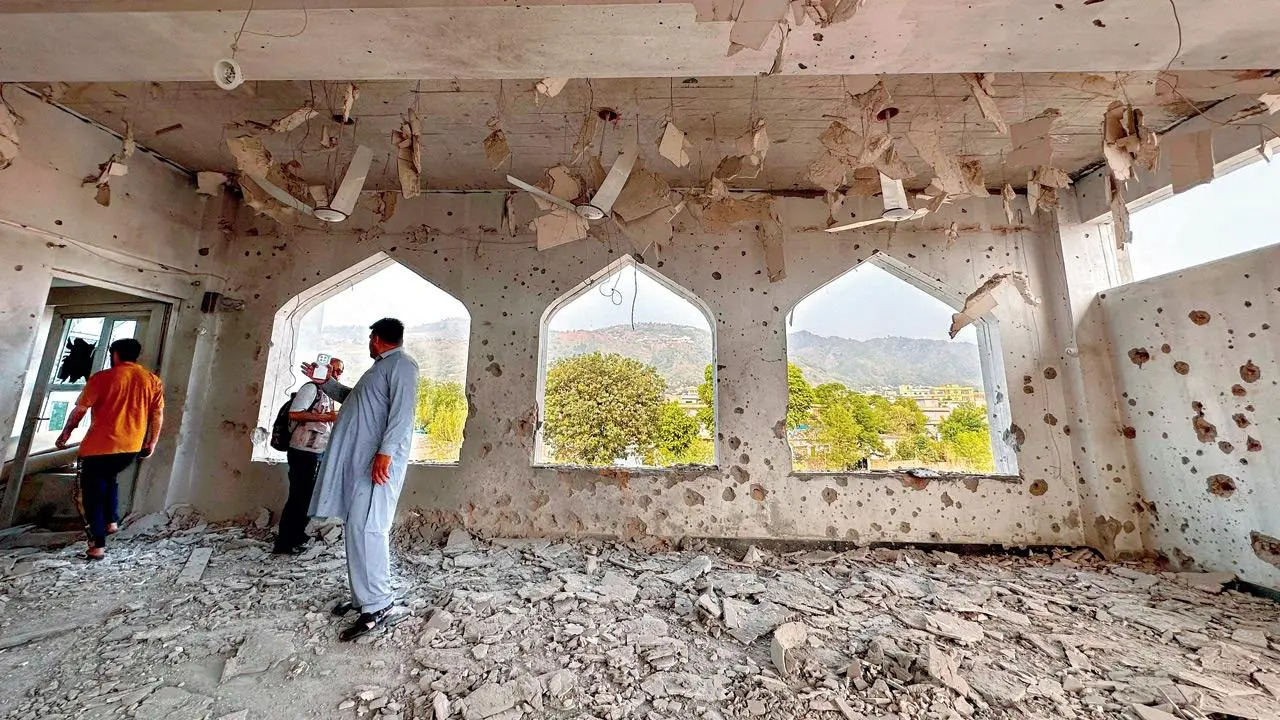Colonel Ashutosh Kale and Lt Colonel Gaurav Bali speak exclusively to mid-day on Operation Sindoor’s significance

A view of a damaged structure in the Kotli district of Pakistan-administered Kashmir. Pic/PTI
In the aftermath of Operation Sindoor, India has once again asserted its strategic resolve on the global stage. But is this a one-off strike or the beginning of a new doctrine of deterrence? To unpack the mission’s impact, intent, and implications, mid-day speaks exclusively with Colonel Ashutosh Kale, ex-Commanding Officer of the Third Grenadiers. A seasoned officer with firsthand experience in critical operations, Colonel Kale offers sharp insights into the precision, planning, and purpose behind India’s latest military move. Here are the excerpts from the conversation with both armymen.
Colonel Ashutosh Kale
India has just executed Operation Sindoor. Is this the end or just the beginning?
Colonel Ashutosh Kale: It's a great moment for every Indian—strategic, symbolic, and timely. Operation Sindoor is not just a mission, it's a message.
The name itself evokes culture, honour, and identity. But this is likely just the beginning of a new era of deterrence.
India has been steadily raising the bar—from Operation Parakram to surgical strikes, Balakot, and now Sindoor. But our focus remains clear: we only target terror infrastructure, never civilians or military assets, in order to avoid escalation.
How difficult is it for the army to strike with such precision and avoid civilian harm?
Kale: It takes years of planning. We’ve monitored these terror camps and launchpads over time through tech surveillance and human intelligence. There’s a dedicated ecosystem that tracks radio chatter, verifies identities, and triangulates locations. Our forces don’t sleep—even when the country does.
This time, we hit not just operatives, but masterminds—sending a message at both tactical and strategic levels. Our aircraft didn’t cross the border. Missiles were launched from Indian airspace, backed by precision drones. It's a measured, non-escalatory move.
Yet Pakistan denies the presence of terror camps and claims civilian casualties. How do you respond?
Kale: Pakistan has long denied what its own leaders have admitted—harbouring over 30,000 militants. Strategically, they compensate for their military and tech inferiority by relying on terrorism and nuclear threats.
But their nuclear posturing is hollow. India follows a no-first-use policy, but if provoked, our retaliation could threaten Pakistan’s very existence.
Even China, despite supporting Pakistan, wouldn’t want its CPEC investments destroyed in a nuclear fallout.
As for terrorism, there’s a risk of sleeper cells being activated.
That’s why cities are on high alert, and agencies like RAW and state intelligence are working overtime. The threat is real, and India is prepared.
 Subscribe today by clicking the link and stay updated with the latest news!" Click here!
Subscribe today by clicking the link and stay updated with the latest news!" Click here!








